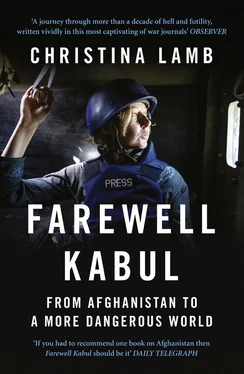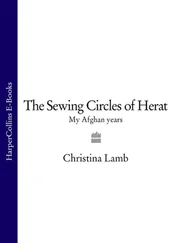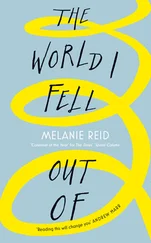By the time of the vote, I was on a plane. International air traffic had reopened on 13 September after an unprecedented closing of the skies. Most journalists headed to northern Afghanistan to join up with the Northern Alliance, or to Peshawar in north-west Pakistan, the closest Pakistani city to the border with Afghanistan, and the headquarters of the mujaheddin during the war against the Russians. I headed further west, to the earthquake-prone town of Quetta, which was the nearest Pakistani city to Kandahar, the heartland of the Taliban, and like Peshawar had long been home to hundreds of thousands of Afghan refugees. It was also where my oldest Afghan friend, Hamid Karzai, lived.
I checked into the Serena Hotel, where there were soon so many journalists that makeshift beds were set up in the ballroom. I was happy to be back. From my window I could see hills the colour of lion-skin, populated with tribes so troublesome that the British Raj had given up trying to control them and instead given them guns and cash to leave them alone. Beyond those hills lay Afghanistan.
The town used to be on the overland route for backpackers, and in the 1980s I would see big orange double-decker buses that had come all the way from London’s Victoria station. The buses did not come any more, but little else had changed. On the main Jinnah Road you could still buy a rifle or some jewelled Baluch sandals, both of which were sported by the local men who wandered around hand in hand.
I met up with commanders I had known back in the 1980s when they were young, dashing and full of hope. Now they were potbellied, greying and jaded, but they had been given a sudden lease of life by finding their long-forgotten country the focus of world attention. Just as in the old days we sat cross-legged on cushions on the floor drinking rounds of green tea, served with little glass dishes of boiled sweets (in place of sugar) and crunchy almonds.
The most important call of all my old contacts was Karzai, whom I had got to know when we lived near each other in Peshawar and he was spokesman for the smallest of the seven mujaheddin groups fighting the Russians. His family were prominent landowners from the grape-growing village of Karz, near Kandahar. His father had been Deputy Speaker of parliament, and his grandfather Deputy Speaker of the senate; they were from the majority Pashtun tribe, the same Popolzai branch of the royal family as the unfortunate murdered King Shah Shuja. Karzai had been at school in the Indian hill city of Simla when the Russians invaded, and would never forget the moment his schoolfriends gave him the news. ‘I felt I could no longer hold my head high as a proud Afghan,’ he told me. Though he was the youngest of six brothers, he became spokesman for the family as the only one to stay after the others moved to America and opened a chain of Afghan restaurants called ‘Helmand’ in Baltimore, Boston and San Francisco.
‘If you want to understand Afghanistan you must understand the tribes,’ he urged me on our very first meeting. He invited me to his home to meet elders from across southern Afghanistan who soon had me spellbound with astonishing stories that mostly involved fighting and feuding.
Karzai insisted that the key city of Afghanistan was Kandahar, where its first King, Ahmat Shah Durrani, had been crowned. He took me on my first trip there in 1988, the only time he had gone on jihad, when we rode around on motorbikes and had several narrow escapes from Soviet bombs and tanks. The group we had travelled with, the Mullahs’ Front, went on to become Taliban.
A year after that trip the last Soviet soldier crossed the Oxus River out of Afghanistan, but what seemed an astonishing victory quickly soured as the Afghan mujaheddin all started fighting each other. I moved on to other stories in other countries and continents that didn’t bruise my heartstrings quite as much. I still went back and forth to Pakistan, however, and had last seen Karzai in 1996, when we quarrelled bitterly in Luna Caprese, the only Italian restaurant in Islamabad after he told me he was fundraising for the Taliban.
Later he had turned against them, saying Pakistanis had taken over the Taliban and Arabs had taken over the country, and like Dr Abdullah he kept banging on offices in Whitehall and Washington with Cassandra-like warnings. For years, he too had met only closed doors. The British Foreign Office didn’t even have an Afghan section, and a diplomat in the South Asia section told me Karzai would be palmed off with the most junior official, who would moan, ‘Not him again.’
He moved to Quetta, to the house of his genial half-brother Ahmed Wali, who had supported him through all those years when everyone else had forgotten Afghanistan. Now, of course, everything had changed. As a fluent and eloquent English speaker he had a queue of diplomats, spies and journalists at his, or rather Ahmed Wali’s, door.
Karzai greeted me warmly. His father had been assassinated in 1999 by men on motorbikes as he was walking back from prayers at the mosque around the corner from the house. Karzai blamed the Taliban and Pakistan’s powerful military intelligence agency, ISI (Inter-Services Intelligence). He had become head of the tribe after that and needed a wife, so in a betrothal arranged by his mother he married his cousin Zeenat, a gynaecologist at Quetta hospital.
He was shocked by 9/11. ‘If only people had listened,’ he said.‘Everything will change now,’ I replied.
Some things, it seemed, hadn’t changed. Back in the 1980s we had endlessly discussed how ISI were pulling the wool over the eyes of the CIA, which had given them carte blanche to distribute billions of American and Saudi dollars and weapons to the mujaheddin fighting the Russians. Karzai and other Afghans had not forgiven ISI for the way they directed the vast majority to their favourites, the fundamentalist Gulbuddin Hekmatyar and Jalaluddin Haqqani, or diverted it to fund their own proxy war in Kashmir as well as build their nuclear bomb. In those days they didn’t really hide this, and I’d even been to visit one of their militant training camps just outside Rawalpindi. Their openness had some limits. In 1990, when I wrote stories that Karzai had helped me research on ISI’s interference and on selling arms to Iran, I had been picked up from my apartment in Islamabad, threatened and interrogated by ISI for a night, followed for a week by two cars and a red motorbike, even to a friend’s wedding, then eventually deported.
Now over green tea Karzai insisted that Pakistan was again lying to the US. ‘They are saying they have stopped supporting the Taliban because otherwise the US will declare them a terrorist sponsor state and bomb them too,’ he said. ‘The Americans told them you are either with us or against us. But you and I know it’s an ideology, not just a policy. I promise you they are still supplying arms to the Taliban.’
To start with, I wasn’t sure I believed him. The eyes of the world were on this region. Surely Pakistan would not be so reckless. But I did know that they had got away with it before, and how personally involved many ISI officers in the field were with some of the Taliban after more than twenty years of working with them. I’d had enough discussions with them to agree with Karzai that for many it was an ideology, not a policy – some told me they saw the Taliban as a pure form of Islam, and would like a similar government in Pakistan.
Some strange things were happening. Shortly after 9/11, when President George W. Bush had asked Pakistan’s military ruler General Pervez Musharraf for cooperation, Musharraf had asked that the US hold off any action until Pakistan had made a last try at persuading the Taliban to hand over bin Laden. General Mahmood Ahmed, the ISI chief, who had helped to organise the coup that brought Musharraf to power, led a delegation of clerics to Kandahar to personally appeal to Mullah Omar. But Mufti Jamal, one of the clerics who went with him, told me that the General made no such request. ‘He shook hands very firmly with Mullah Omar and offered to help, then later even made another secret mission without Musharraf’s knowledge.’
Читать дальше












